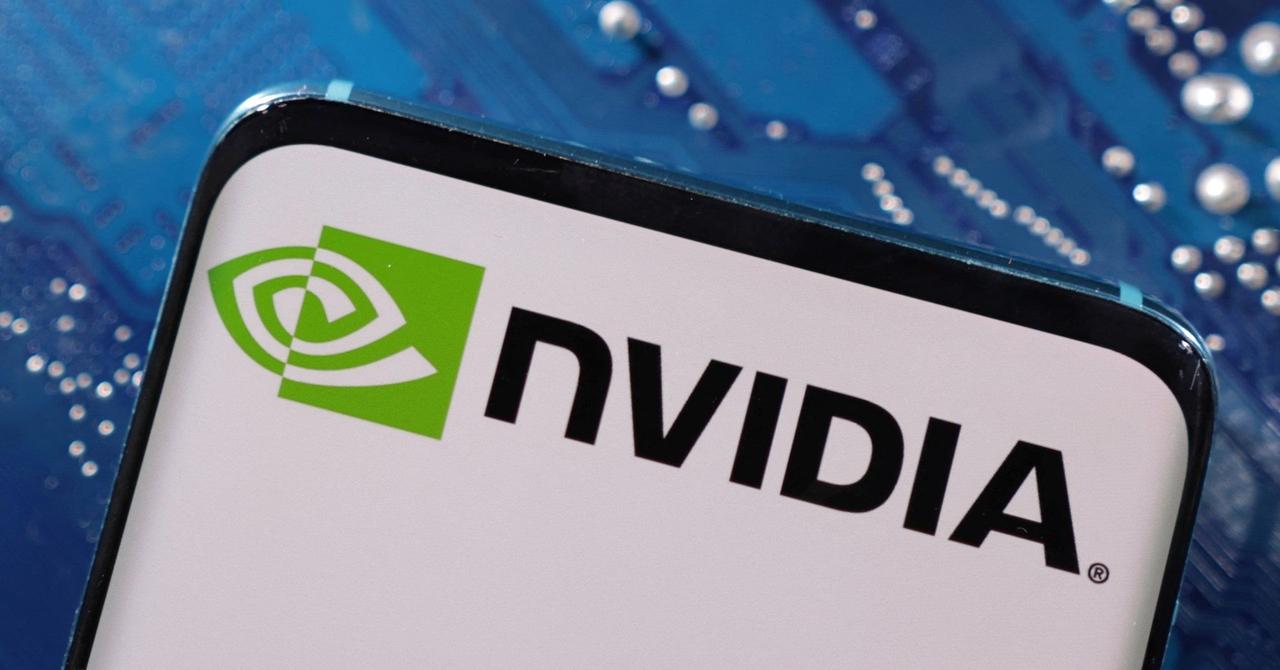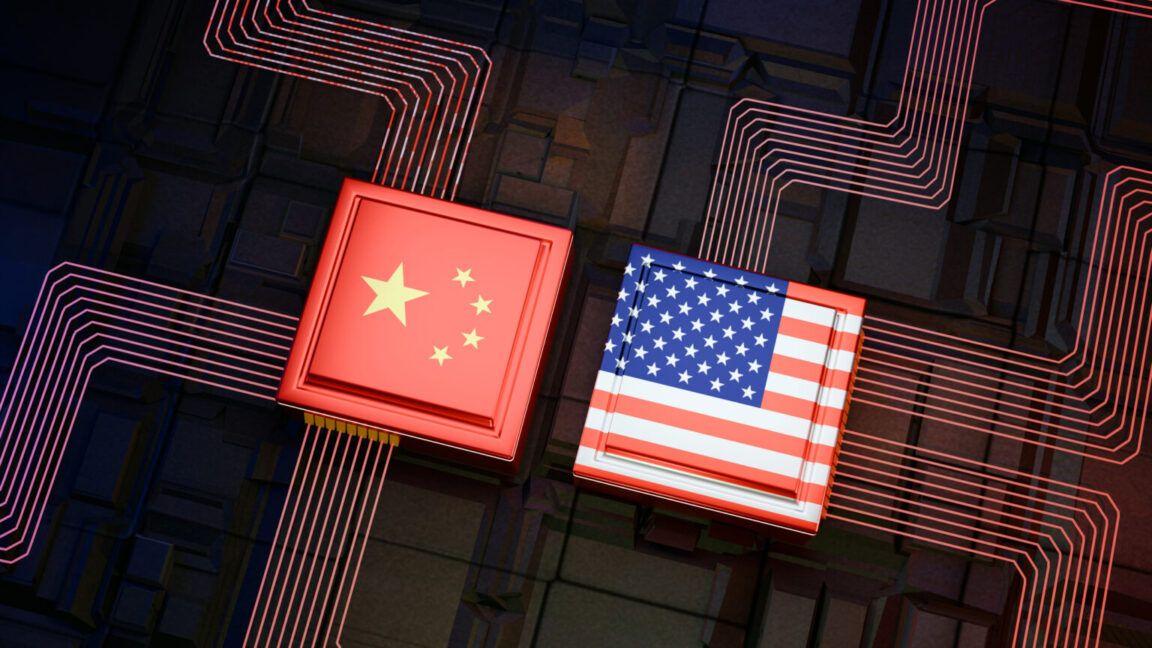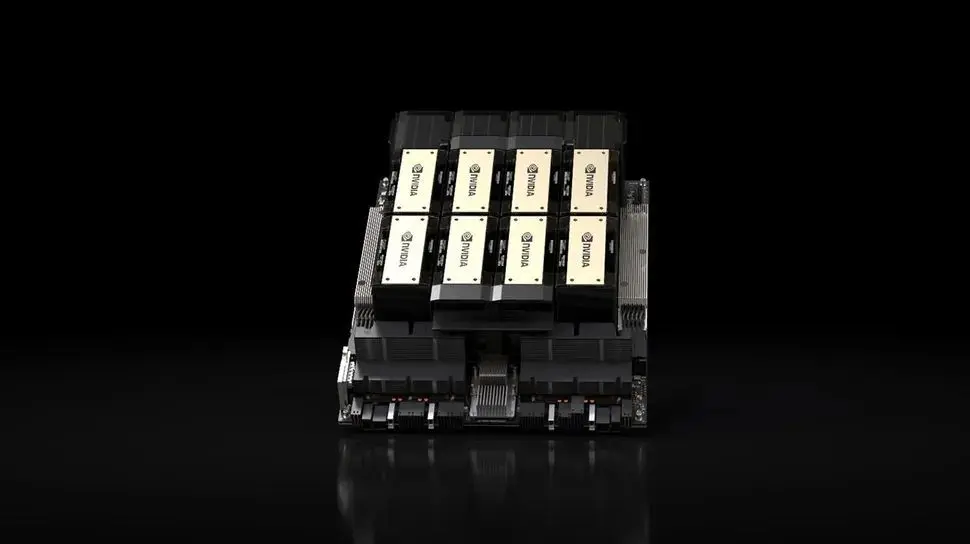US Allows Nvidia's AI Chip Shipments to China, Aiming to Maintain Technological Edge
2 Sources
2 Sources
[1]
US allowed Nvidia chip shipments to China to go forward, Hassett says
July 29 (Reuters) - White House National Economic Adviser Kevin Hassett, in an apparent reference to Nvidia's (NVDA.O), opens new tab H20 AI chip shipments to China, said President Trump and his team decided to let the chips go in a bid to stop China from getting ahead in the race for chips. "One of the risks that you have to take seriously is that if China's not buying chips from us, then they're innovating, making their own chips. And the one thing we don't want is for them to jump ahead in the race for chips," he told Fox News in an interview. Reporting by Ryan Patrick Jones and Bhargav Acharya in Toronto; Our Standards: The Thomson Reuters Trust Principles., opens new tab
[2]
US allowed Nvidia chip shipments to China to go forward, Hassett says
(Reuters) -White House National economic adviser Kevin Hassett, in an apparent reference to Nvidia's H20 AI chip shipments to China, said President Trump and his team decided to let the chips go in a bid to stop China from getting ahead in the race to make the best chips. Nvidia two weeks ago said it was filing applications with the U.S. government to resume sales to China of its H20 graphics processing unit, and has been assured by the U.S. it will get the licenses soon. H20 chips are the best it can legally offer in China but lack some of the computing power of the versions for sale outside China because of previous restrictions put in place by Trump's first administration and then President Joe Biden. Hassett told Fox News, "President Trump and his team decided to let the NVIDIA chips go" to maintain America's technological edge in AI chips. "One of the risks that you have to take seriously is that if China's not buying chips from us, then they're innovating, making their own chips. And the one thing we don't want is for them to jump ahead in the race for chips." (Reporting by Ryan Patrick Jones and Bhargav Acharya in Toronto; Editing by Daniel Wallis)
Share
Share
Copy Link
The White House has permitted Nvidia to proceed with AI chip shipments to China, citing concerns over potential Chinese technological advancements if cut off from US chip supplies.
US Approves Nvidia's AI Chip Exports to China
In a strategic move that underscores the complex dynamics of US-China technological competition, the White House has given the green light for Nvidia to proceed with shipments of its H20 AI chips to China. This decision, revealed by White House National Economic Adviser Kevin Hassett, aims to prevent China from gaining an advantage in the global race for advanced semiconductor technology
1
.Strategic Rationale Behind the Decision

Source: Reuters
The Trump administration's decision to allow these chip exports stems from a nuanced understanding of the potential risks associated with completely cutting off China's access to US-made chips. Hassett explained the reasoning, stating, "One of the risks that you have to take seriously is that if China's not buying chips from us, then they're innovating, making their own chips. And the one thing we don't want is for them to jump ahead in the race for chips"
2
.Nvidia's H20 Chips: A Controlled Export
Nvidia had previously announced its intention to file applications with the US government to resume sales of its H20 graphics processing unit to China. The company expressed confidence in receiving the necessary licenses soon
2
. It's important to note that the H20 chips, while the best Nvidia can legally offer in China, are subject to certain limitations:- They lack some of the computing power available in versions sold outside China.
- These restrictions were initially implemented during Trump's first administration and continued under President Joe Biden
2
.
Related Stories
Balancing Act in US-China Tech Relations
This decision highlights the delicate balance the US is trying to maintain in its technological relationship with China. On one hand, there's a desire to prevent China from developing advanced chip-making capabilities independently. On the other, there's a recognition of the economic benefits of continuing to supply chips to the Chinese market.
Implications for Global AI Chip Competition
The approval of Nvidia's chip shipments to China could have significant implications for the global AI chip market:
- It allows US companies to maintain a presence in the lucrative Chinese market.
- It potentially slows down China's efforts to develop domestic alternatives to US-made chips.
- It underscores the interconnected nature of the global semiconductor industry, even amidst geopolitical tensions.
As the AI chip race continues to intensify, decisions like this will likely play a crucial role in shaping the future of global technological competition and cooperation.
References
Summarized by
Navi
[2]
Related Stories
U.S. Imposes 15% Revenue Share on Nvidia and AMD's AI Chip Sales to China Amid Escalating Tech Rivalry
05 Aug 2025•Policy and Regulation

Nvidia Set to Resume AI Chip Sales to China Amid Regulatory Shifts
10 Jul 2025•Technology

US export rules greenlight H200 sales to China, but strict limits put American buyers first
07 Jan 2026•Policy and Regulation

Recent Highlights
1
ByteDance's Seedance 2.0 AI video generator triggers copyright infringement battle with Hollywood
Policy and Regulation

2
Demis Hassabis predicts AGI in 5-8 years, sees new golden era transforming medicine and science
Technology

3
Nvidia and Meta forge massive chip deal as computing power demands reshape AI infrastructure
Technology





